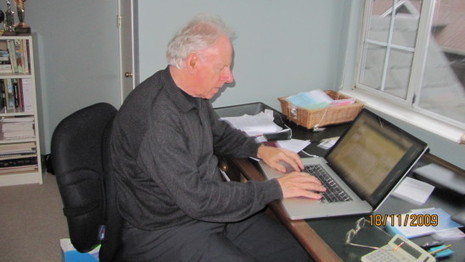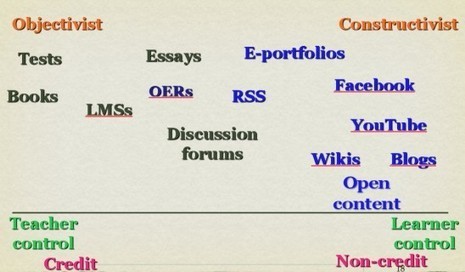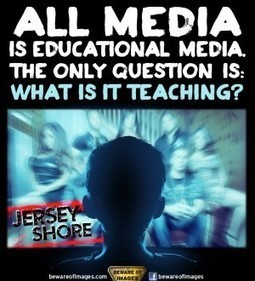Get Started for FREE
Sign up with Facebook Sign up with X
I don't have a Facebook or a X account
 Your new post is loading... Your new post is loading...
 Your new post is loading... Your new post is loading...
diane gusa's comment,
April 16, 2014 9:35 AM
Yes! As an online learner and teacher I found the absence of best practices for online learning missing in all my Mooc participation. It would better be termed distance learning, falling back to the correspondence education of the past.

Alberto del Mazo's curator insight,
April 18, 2014 7:38 AM
vía [url=/u/174100 x-already-notified=1]Jordi Adell[/url] leo este último artículo del canadiense Tony Bates, especialista en "online learning". 
Halina Ostańkowicz-Bazan's curator insight,
April 22, 2014 7:17 AM
Lastly, I am concerned that the computer scientists seem to be taking over online education. Ivy League MOOCs are being driven mainly by computer scientists, not educators. Politicians are looking to computer science to automate learning in order to save money. Computer scientists have much to offer, but they need more humility and a greater willingness to work with other professionals, such as psychologists and teachers, who understand better how learning operates. This is a battle that has always existed in educational technology, but it’s one I fear the educators are losing. The result could be disastrous, but that’s a theme for a whole set of blog posts.

Peter B. Sloep's curator insight,
March 25, 2013 12:33 PM
Tony Bates reports that he has "grown increasingly convinced that [web 2.0 tools] have the power to really revolutionize university teaching in particular". Unfortunately, he says, formal post-secondary education shows few signs of have understood this message. This is a pity, he continues, as web 2.0 tools i) can facilitate 21st century knowledge workers, ii) lend themselves to constructivist approaches, iii) are familiar to students, iv) are more engaging for student.
These are the reasons most people will mention for why we should invoke web 2.0 tools. However, Tony's fifth reason is not so familiar and arguably the most powerful one. Eventually, he claims, web 2.0 tools will radically change student assessment. No more paper and pencil or computer marked assignments, but assignment via portfolios and the use of multimedia. That of course requires us to rethink the idea of a course completely.
It also shows that MOOCs really are 'education as we know it' in an online mould. If Tony is right, then we may wonder if quality will prevail (that is redesign of education making full use of the affordances of web 2.0 tools) or if maximizing revenues will prevail (that is, sticking to existing models but broadcasting the content even more widely). Seen in this way, MOOCs really are web 1.0, the information web, rather than the social web that web 2.0 is. So, a step back rather than a step forward. (@pbsloep)

Louise Lewis's curator insight,
March 26, 2013 6:30 AM
Yes, totally agree with the comments re MOOCS being web 1.0 but what if they are just another resources for a learner in a learner-centred environment?
|
|















http://www.tonybates.ca/2015/02/17/integrating-open-textbooks-open-research-and-open-data-into-teaching/
http://www.tonybates.ca/2015/02/16/what-do-we-mean-by-open-in-education/